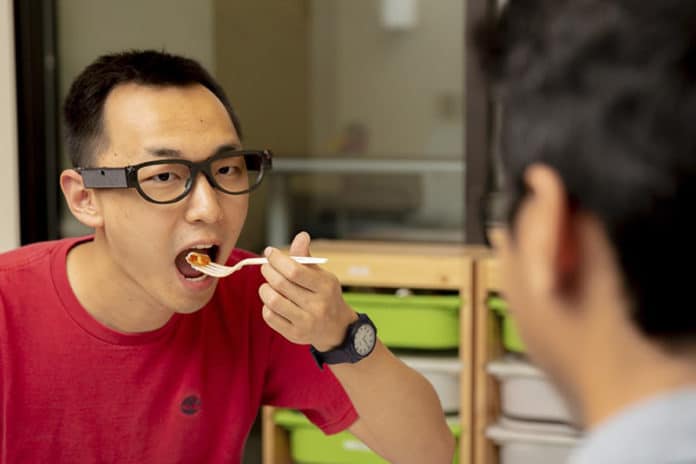To improve health and lose weight, many people try to improve their diet by keeping track of what they eat daily. However, it’s not easy to remember everything you eat and drink during the day, so researchers at Carnegie Mellon University in Pittsburgh are developing a solution to help people track their food habits with high fidelity.
The device, called FitByte, a non-invasive, wearable sensing system, consists of several sensors that can be mounted on any pair of consumer eyeglasses. The technology combines the detection of sound, vibration, and movement to increase accuracy and decrease false positives. It is equipped with an infrared proximity sensor, a camera, and an accelerometer, a gyroscope, and other sets, which are in almost every device at this point, like your phones and your watches.
FitByte tracks all stages of food intake. It detects the characteristic movements associated with food eating such as chewing, swallowing, hand-to-mouth gestures using the sensors. The technology also addresses the long-standing challenge of accurately detecting drinking and the intake of soft things like ice cream.
It then triggers the small camera at the front of the glasses that capture the area around the mouth and only turns on when the model detects the user eating or drinking. “To address issues of privacy, we’re currently processing everything offline,” said Abdelkareem Bedri, an HCII doctoral student. “The captured images are not shared anywhere except for the user’s phone.”
However, currently, the user has to manually identify what types of food and drink are in the photos, but the team has plans to use artificial intelligence to automatically discern food types over time.
“Our team can take sensor data and find behavior patterns. In what situations do people consume the most? Are they binge eating? Do they eat more when they’re alone or with other people? We are also working with clinicians and practitioners on the problems they’d like to address,” said Mayank Goel, an assistant professor.
Overall, FitByte could help users reach their health goals by tracking behavioral patterns and gives practitioners a tool to understand the relationship between diet and disease and to monitor the efficacy of treatment.
Next, the team plans to add more non-invasive sensors that will allow the model to detect blood glucose levels and other important physiological measures. They are also creating an interface for a mobile app that could share data with users in real-time.
